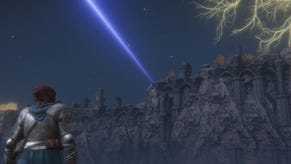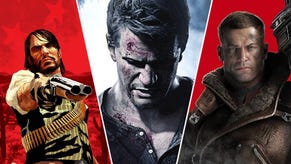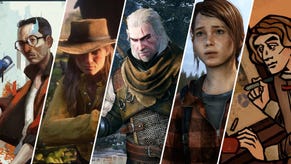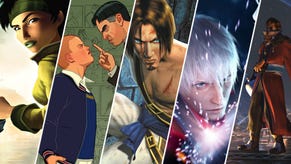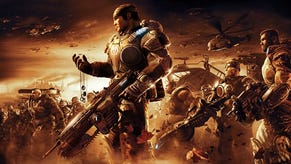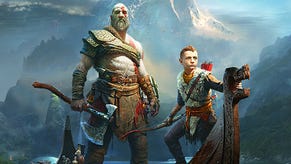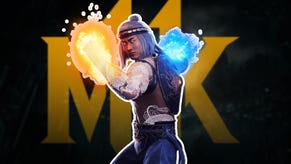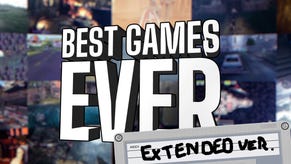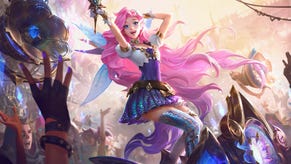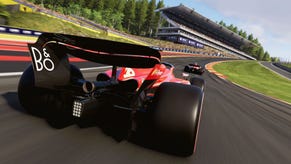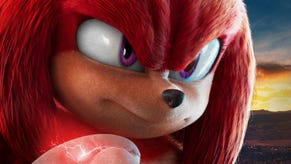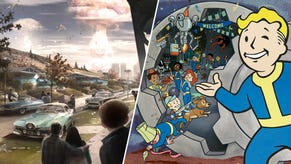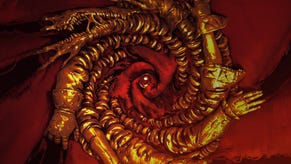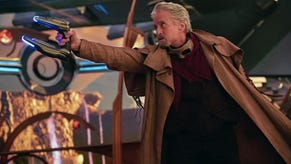In God of War, Your Sense of Progression is Measured by Being Proud of Your Son
We talk to God of War director Cory Barlog about exploring the softer side of Kratos, and how the series is shifting thematically.
This article first appeared on USgamer, a partner publication of VG247. Some content, such as this article, has been migrated to VG247 for posterity after USgamer's closure - but it has not been edited or further vetted by the VG247 team.
We're at E3 2017 covering the year's biggest gaming event. Be sure to check out all our coverage on our E3 2017 hub!
God of War isn't coming to PlayStation 4 until early 2018, but the shape of Kratos' next adventure is finally taking shape. Kratos and his son Atreus are on a journey in a world of Norse gods. While the previous games were stories of rage and revenge, the new God of War is the story of a father and son.
We sat down with God of War director Cory Barlog to take another look at what SIE Santa Monica Studio has released so far and understand where Father Kratos is in this new world. Barlog was the lead animator for the first God of War and director of the second, so this new title represents his return to the series and his chance to redefine what "God of War" means.
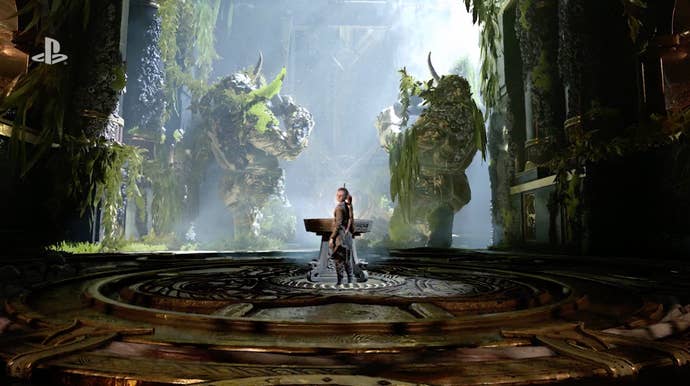
USgamer: After years of a lonely, angry dude and his rage at the world, why have this shift to the story of a father and son?
God of War director Cory Barlog: For me, the inspiration is who doesn't want to go on this great adventure with their parents? When you're a kid, your parents are like superheroes. We wanted to hit each of those moments.
Kratos and his son work together. The kid is not a burden. Kratos doesn't speak the language. His son, the whole game, is translating everything. Anytime you have writing on the wall, he's reading it. Even though the kid speaks the language, he's never been outside of his forest.
This whole game, it's all about family, all about relationships. You can't always do it alone. That's the lesson Kratos has to learn.
USgamer: Why the shift away from Greek mythology?
Barlog: Greece represents an emotional pain for Kratos. He needed to get as far away as possible. At the end of [God of War III], there was this the idea that everything he's done hasn't really worked out to well for him.
There's a period of time where he's by himself, trying to figure out how to control the monster. That's something he's going to need to teach his kid as well. Our worst attributes are usually the things we pass on.
He's saying, "It's not going to be easy and I'm going to fail constantly. I'm going to accept that I don't have control over certain things." It doesn't make him weak. It makes him so much stronger. It's an interesting character transtition.
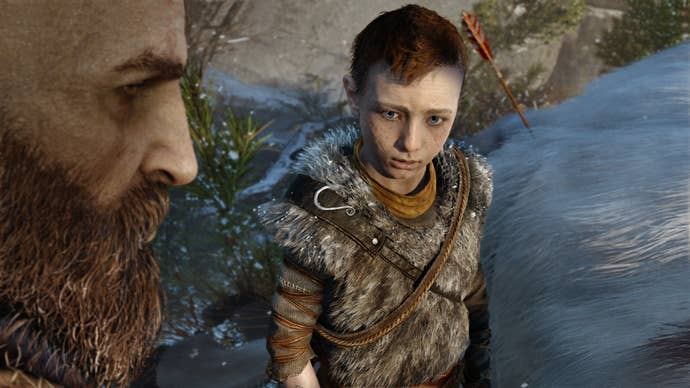
USgamer: Is it hard to find that balance in establishing the emotional connection between Kratos and his son, and the more mechanical uses of the kid within the game?
Barlog: I try to lean into it as much as possible to make sure that we are mechanically and narratively aligned. It feels like all those things fit in there. There's huge ambitions for what we want to do, and sometimes we don't always reach that.
I think through and through, the relationship between these two characters, it's the way you get to see it change from the beginning to the end. The way you participated and kind of guided him.
By the end, the kid's not a burden; when he gets better, you feel responsible for that. In other games, you feel like all you're doing is upgrading. In this one, I feel like you're proud of the kid.
USgamer: Narratively, it feels like you're about to tell the end of Kratos' story. Can the God of War series survive without Kratos?
Barlog: I absolutely think that the universe itself is so fascinating that I don't think it's only Kratos. Kratos is an important part of this because he is the throughline to start introducing new mythologies and this is an interesting second chapter in his life. We'll see how he changes. To me, there's a lot of characters I want to introduce in this one and potentially future ones that we could expand on.
I don't think it is only [Kratos], but I think this one is very much his story.
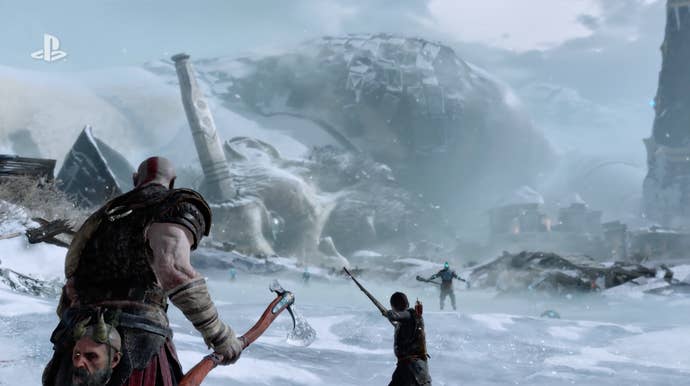
USgamer: The camera is a lot tighter in this God of War compared to the previous games. How does this change the flow of combat and do you think fans will enjoy the shift?
Barlog: It's always a dice roll. I had always said I don't want the [Batman: Arkham series] camera. I wanted it really close and my lead combat guy was really against it. He said "Leave me alone for a couple of days and I'm going to do some experiments with the camera."
Then when he came back, he chose a camera that was closer than I was expecting. We started throwing a few things around and talking to other people. I think with all the different tricks in our arsenal, we're going to be able to make it feel amazing. A lot of people think, "Ugh, it's going to slow it down."
It's not like that at all. The only thing you don't get, which I don't think is necessary, is the "Look how far away I am and Kratos is a little pixel!" That's okay, but I was blown away by the Grand Canyon and I don't have somebody standing way back behind me.
You're there, seeing this amazing thing. That's the beauty of being inside this world. When I'm standing on top of some great structure looking at this landscape unfold in front of me, I feel like I'm there, as opposed to a picture of someone who is there. I want people to feel like they are Kratos.
USgamer: Given your history with the God of War franchise, what do you feel has been the best set piece? And do you feel like you've topped it in this game?
Barlog: The end of [God of War II], we had a cinematic of Kratos riding the back of Gaia heading up to Olympus. At that time, I still was thinking that I would direct the third one. After finishing the story and layout of the game, [Stig] took that and nailed it right out of the park. The Gaia scene is incredible. It's an epic set piece, but very much in the tone of the old God of War.
All the things that we're doing, all the big moments in this game, are seen through the lens of "This could probably happen." They're no less fantastic, but we sort of set this mood throughout the beginning of the game. You feel like this is a real space. It's authentic. It doesn't feel like I'm in a cartoon space; I'm in a real world with real rules.
Then we start bending the rules. As you experience the fantastic—it's like if you walked out of this building and saw a giant dragon. You're establishing the suspension of disbelief within the audience that makes the set pieces more spectacular.


